|
February 12, 2021 - No. 5
Participate in the February 14
Women's Memorial Marches!
• Justice for Missing and
Murdered Indigenous Women and Girls! End the
Violence!
• Hold
the Canadian Government to Account for
Violence Against Indigenous Women and Girls
Women's memorial events will be held on
Valentine's Day in cities across the country to
demand justice for Indigenous women and girls
who have been murdered or have gone missing, and
to get the government to take measures to end
the violence. The marches began in 1992 in
Vancouver's Downtown Eastside to demand that
action be taken following the murder of a Coast
Salish woman whose death was met with
indifference from the authorities and the media.
Today, people from all walks of life are
demanding justice for murdered and missing
Indigenous women and girls and opposing all
forms of violence against women. Violence
against women has been on the rise since the
beginning of the pandemic, as the isolation
imposed on everyone renders them all the more
vulnerable.
The persistence of Indigenous women and peoples
in asserting their right to be is an inspiration
to all, especially their insistence on defining
what it is they need and not permitting others
to define what is acceptable.
Workers' Forum calls on workers across
Canada to join the marches, virtual meetings and
other events of the 30th annual Women's Memorial
March.

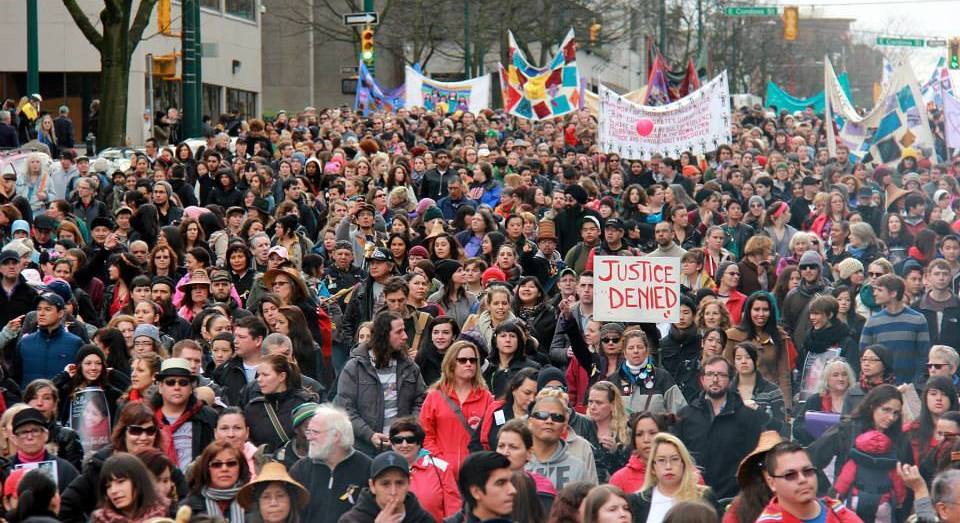
February 14, 2014. Women's Memorial March,
Vancouver.
Across Canada on February 14, Indigenous
people and Canadians from all walks of life join
families of murdered and missing Indigenous
women and girls to remember their names, honour
their spirits and call for the end to the
state-organized violence and brutality that
targets Indigenous women and girls.
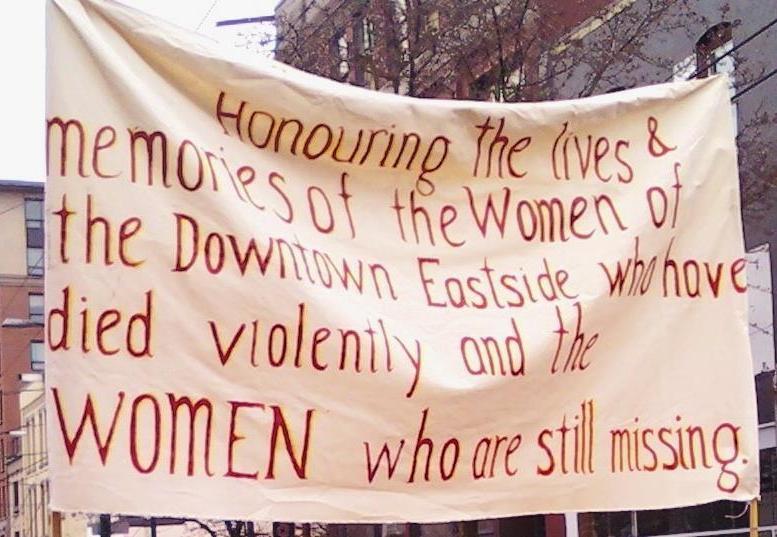 The first Women's
Memorial March was organized by the women of
Vancouver's Downtown Eastside on February 14,
1992 on unceded Salish territory, as a vigil for
an Indigenous woman following her brutal murder.
Since then, the women of the Downtown Eastside,
led by Indigenous women and girls, have
organized an annual commemoration and march.
Over the years the events have expanded to all
parts of Canada and to some cities in the U.S.
The organizers point out that the memorial
events are organized to highlight the "physical,
mental, emotional, and spiritual violence, that
women, particularly Indigenous women and girls
face on a daily basis" and note that the
February 14th Women's Memorial March is an
"opportunity to come together to grieve the loss
of our beloved sisters, remember the women who
are still missing, and to dedicate ourselves to
justice." The scale of this genocide against
Indigenous women and girls can be measured by
the fact that since 1992 there have been close
to 1,000 women and girls who have been murdered
or gone missing in Vancouver's Downtown Eastside
alone. The first Women's
Memorial March was organized by the women of
Vancouver's Downtown Eastside on February 14,
1992 on unceded Salish territory, as a vigil for
an Indigenous woman following her brutal murder.
Since then, the women of the Downtown Eastside,
led by Indigenous women and girls, have
organized an annual commemoration and march.
Over the years the events have expanded to all
parts of Canada and to some cities in the U.S.
The organizers point out that the memorial
events are organized to highlight the "physical,
mental, emotional, and spiritual violence, that
women, particularly Indigenous women and girls
face on a daily basis" and note that the
February 14th Women's Memorial March is an
"opportunity to come together to grieve the loss
of our beloved sisters, remember the women who
are still missing, and to dedicate ourselves to
justice." The scale of this genocide against
Indigenous women and girls can be measured by
the fact that since 1992 there have been close
to 1,000 women and girls who have been murdered
or gone missing in Vancouver's Downtown Eastside
alone.
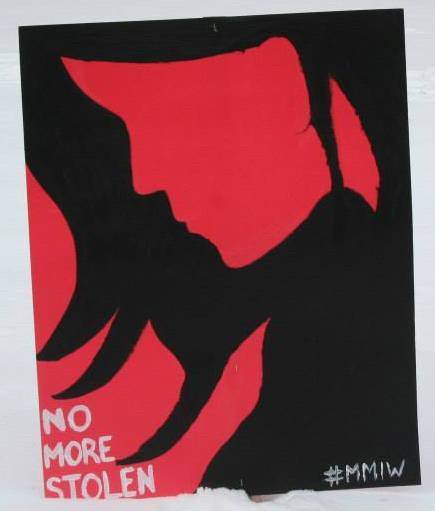 Over the years
various Indigenous organizations and human
rights groups, as well as the UN Human Rights
Committee, have repeatedly pointed out Canada's
ongoing racist colonial abuse of Indigenous
people, the brunt of which has targeted
Indigenous women and girls. The Native Women's
Association of Canada (NWAC) initiated the
Sisters in Spirit Campaign as part of its work
to keep violence against Indigenous women and
girls on the national agenda and to seek
justice. NWAC developed a national database to
track cases of violence and death of Indigenous
women and conducted research which led to a
report entitled What Their Stories Tell Us:
Research Findings from the Sisters in Spirit
Initiative. Like many other reports, it
made policy proposals including increasing
funding for social programs for Indigenous
communities, changes to the criminal justice
system and others, the majority of which have
been ignored. Over the years
various Indigenous organizations and human
rights groups, as well as the UN Human Rights
Committee, have repeatedly pointed out Canada's
ongoing racist colonial abuse of Indigenous
people, the brunt of which has targeted
Indigenous women and girls. The Native Women's
Association of Canada (NWAC) initiated the
Sisters in Spirit Campaign as part of its work
to keep violence against Indigenous women and
girls on the national agenda and to seek
justice. NWAC developed a national database to
track cases of violence and death of Indigenous
women and conducted research which led to a
report entitled What Their Stories Tell Us:
Research Findings from the Sisters in Spirit
Initiative. Like many other reports, it
made policy proposals including increasing
funding for social programs for Indigenous
communities, changes to the criminal justice
system and others, the majority of which have
been ignored.
From the beginning these marches have also been
the occasion to call for a national inquiry into
this violence and brutality, to identify the
causes, to seek solutions and redress for the
victims who now number more than 4,000
individuals.
For decades, successive Canadian governments
have ignored this call. In a December 2014
interview on the CBC, Conservative Prime
Minister Stephen Harper, when asked about his
government's plans to launch a public inquiry
into MMIWG, infamously said "Um... it, it isn't
really high on our radar, to be honest." Then
the government of Justin Trudeau, under great
pressure to make good on their election
promise to launch a national
inquiry, announced plans to launch the
inquiry on December 8, 2015. The inquiry began
in 2016 and, after three years, on June 3, 2019,
the report Reclaiming Power and Place: The
Final Report of the National Inquiry into
Missing and Murdered Indigenous Women and
Girls was tabled. The report concluded,
among other things, that the murder and
dissappearance of Indigenous women and girls is
an expression of genocide against Indigenous
peoples in Canada. Trudeau -- who claimed that
"No relationship is more important to our
government and to Canada than the one with
Indigenous peoples" -- pledged a "National
Action Plan" in response to the National
Inquiry's 231 "Calls for Justice." To date there
has been no action plan. Meanwhile, the
crimes against the Indigenous women and girls
continue.
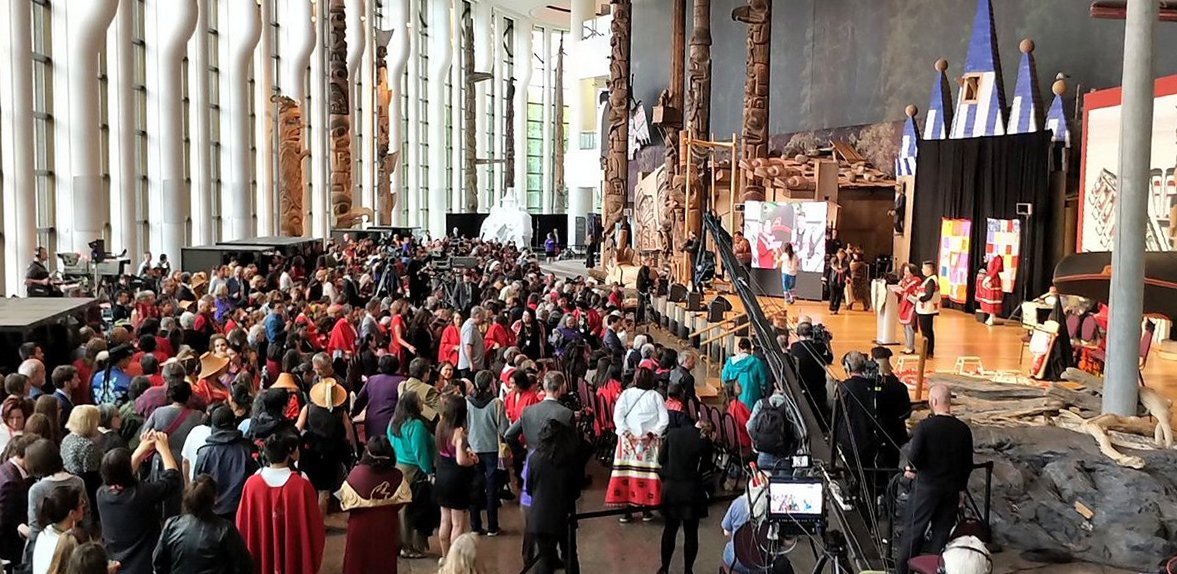
Final report of the National Inquiry is released
in Ottawa. June 3, 2019.
As it stands, the Memorial Marches
continue and the Indigenous peoples and
Canadians will continue to work together to end
the genocide against Indigenous people and to
hold Canada, its governments, institutions,
police agencies and media accountable.
Red Dress Project
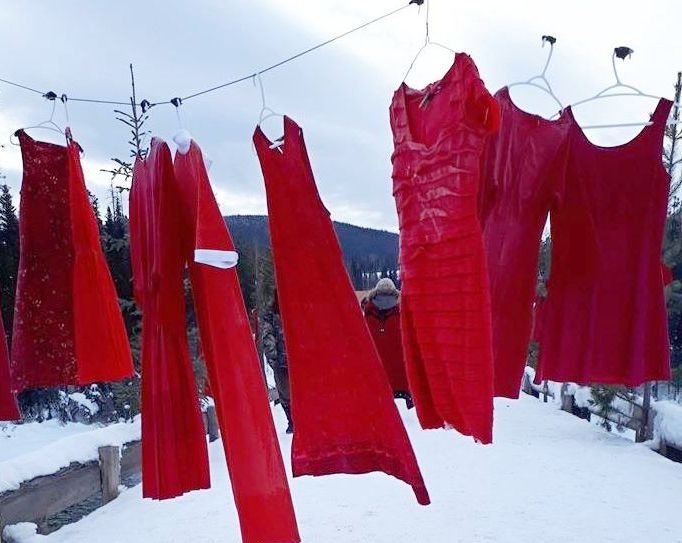 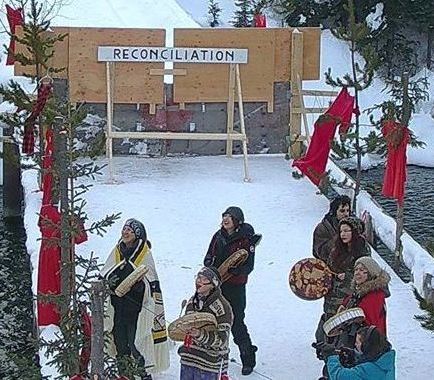
Red dress ceremony in honour of missing and
murdered Indigenous women and girls at
Unist’ot’en Camp as RCMP prepare to invade and
arrest land defenders. February 10, 2020.
The REDress Project launched by Metis artist
Jaime Black in 2010 is another initiative
created in response to the crisis of missing and
murdered Indigenous women and girls in Canada.
In communities all over the country red dresses
are hung in public places as a poignant reminder
of the lives of Indigenous women and girls lost
and to raise public opinion that a solution must
be found.
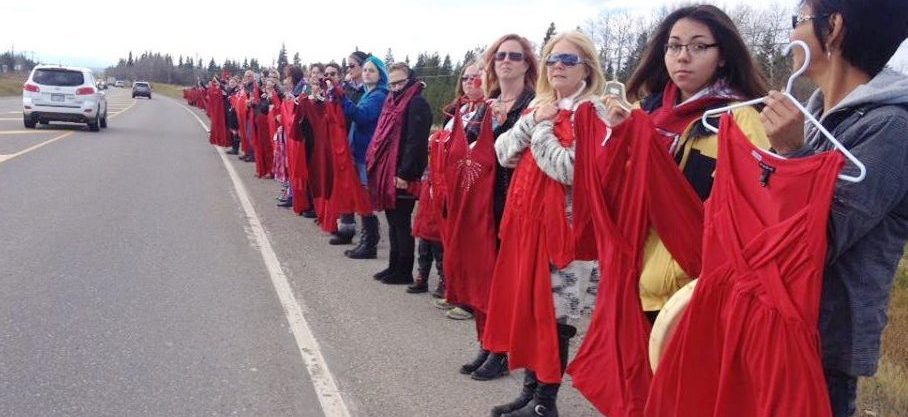
Women line the Highway of Tears in
northern BC where so many women have been
murdered or gone missing over many
years. October 2016.
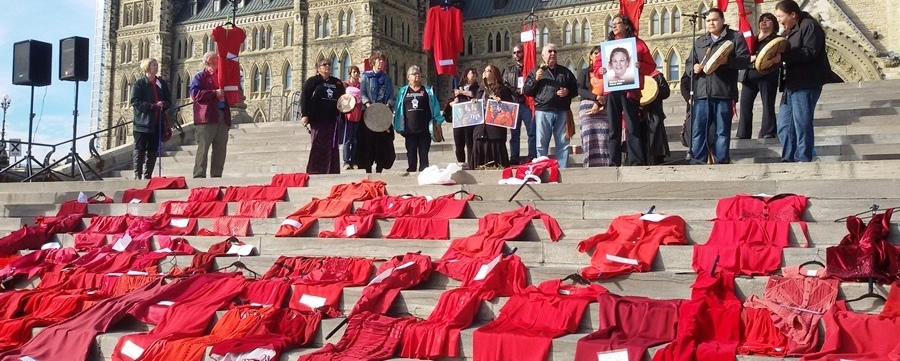
Red dresses on Parliament Hill demand action
from newly elected Liberal government to end
the violence against Indigenouse women and
girls. November 3, 2015.
Walking With Our Sisters
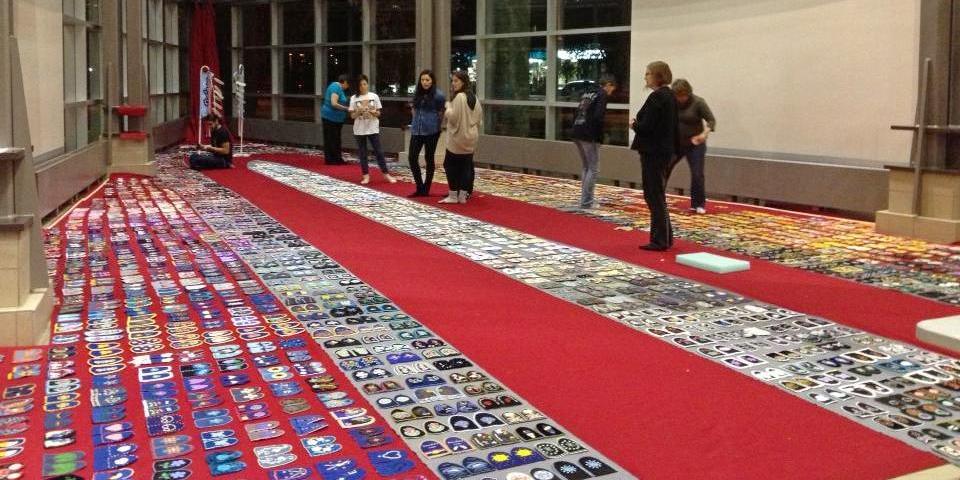
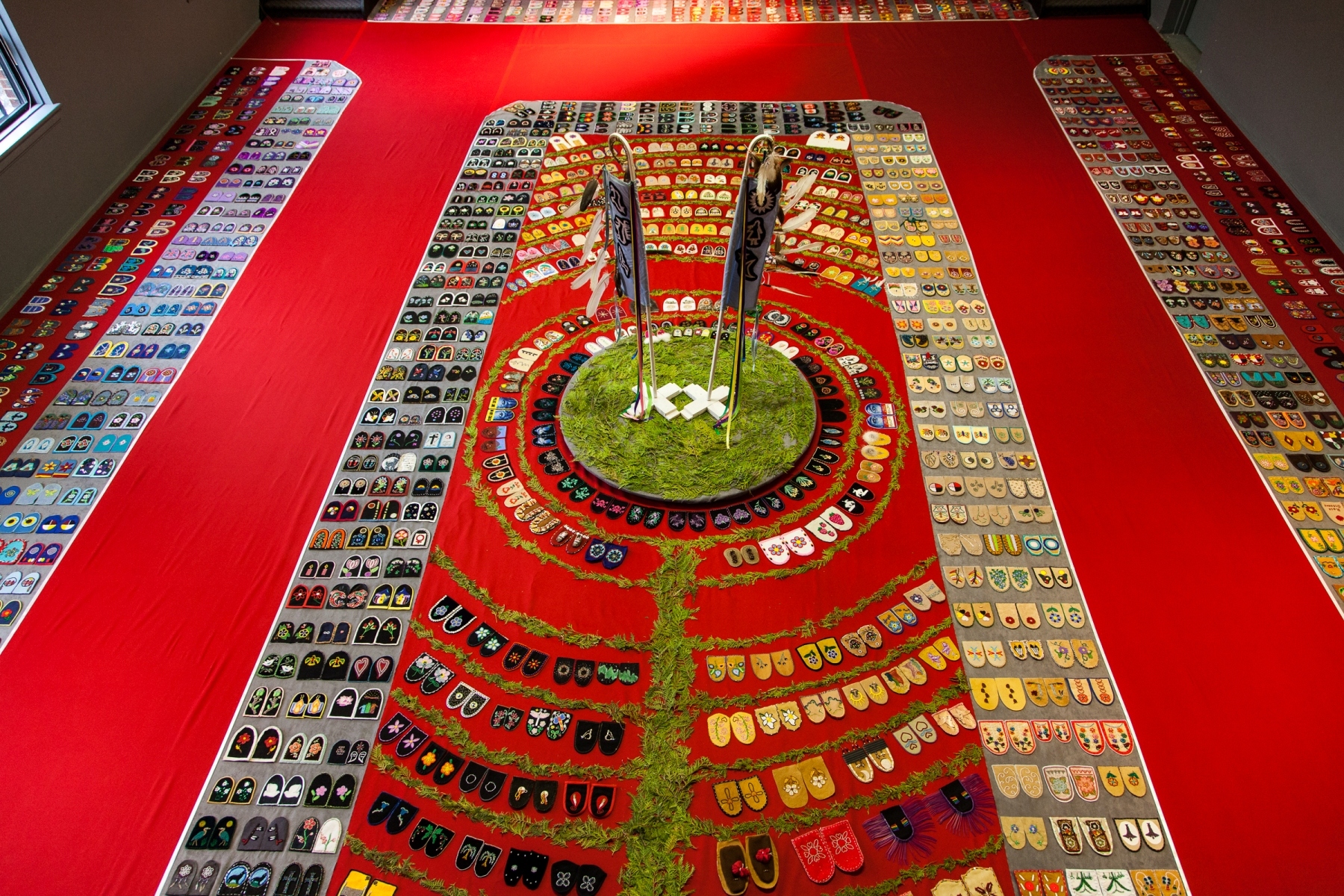 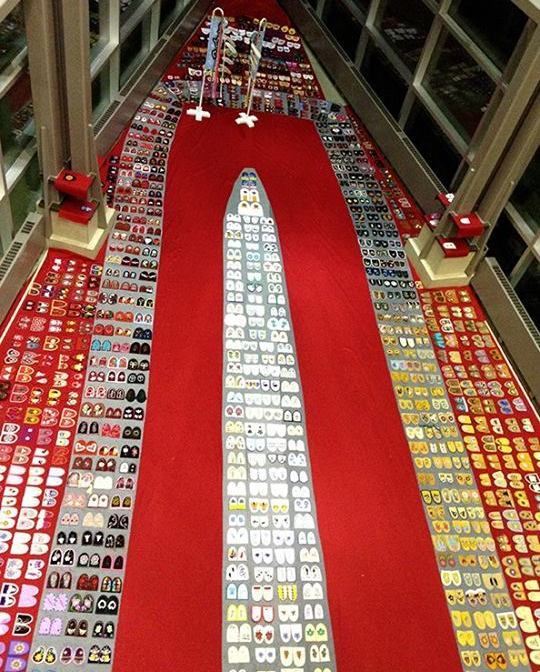
Walking With Our Sisters is a commemorative art
project created to honour murdered and missing
Indigenous women. It includes 1810 pairs
moccasin vamps (tops) plus 118 pairs of
children’s vamps which have been made and
donated by individuals. Each pair of
vamps represents a missing or murdered
Indigenous woman. The unfinished moccasins
represent the unfinished lives of the women
whose lives were cut short. The children’s vamps
are dedicated to children who never returned
home from residential schools.
Women's Memorial Marches
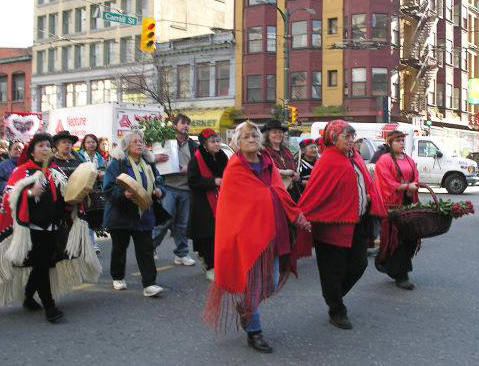 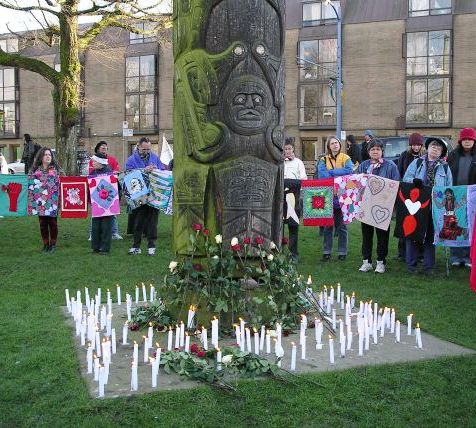
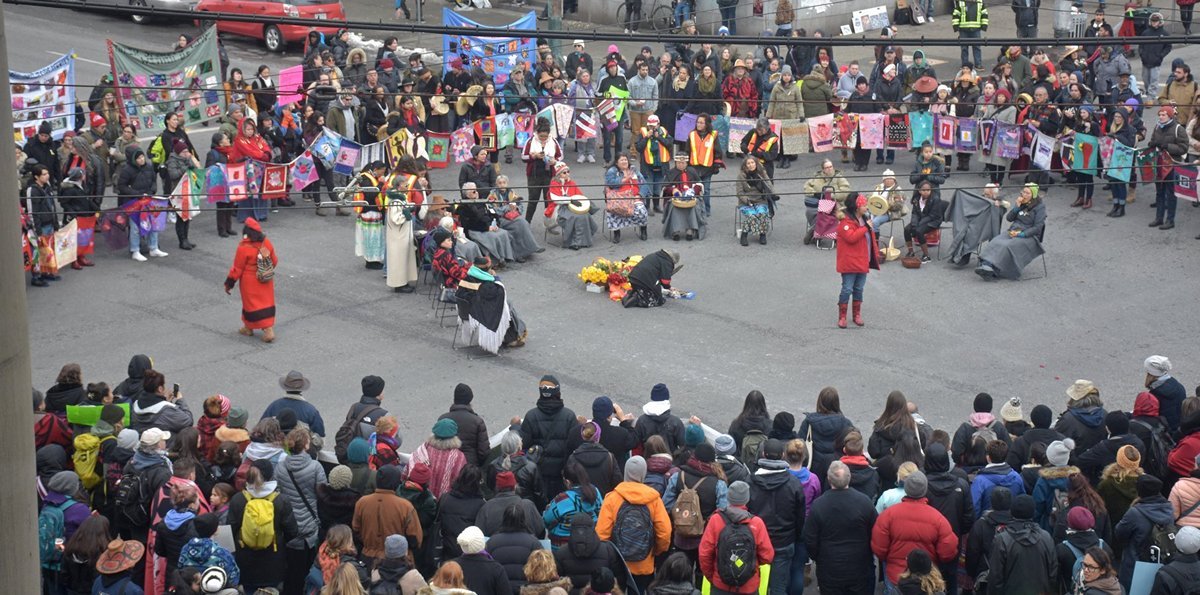

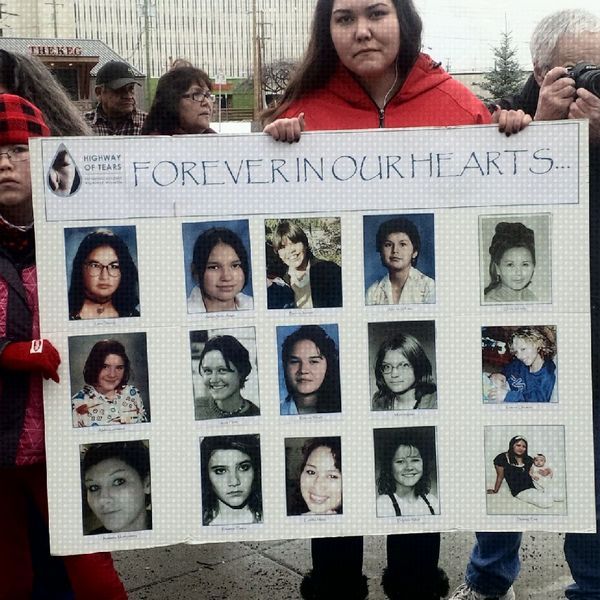 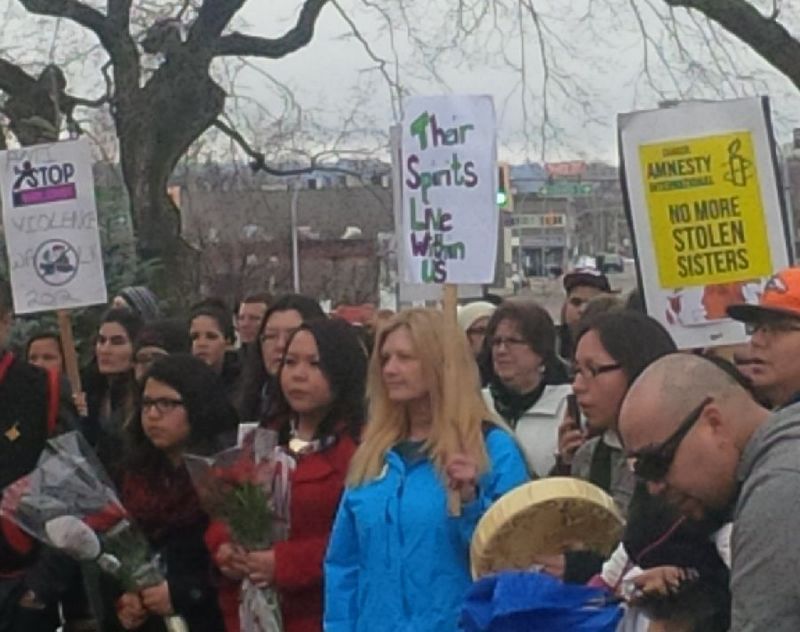


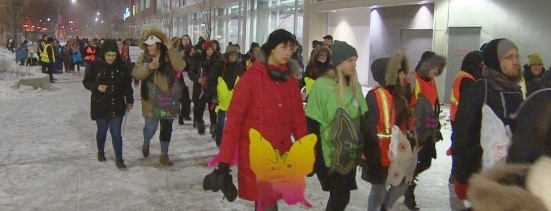
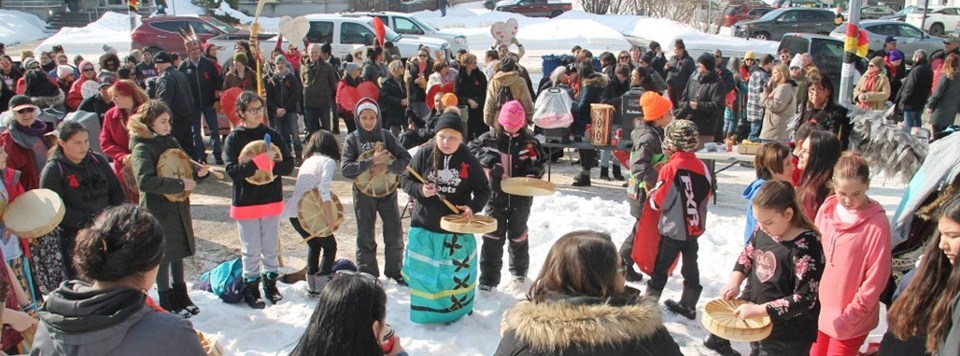
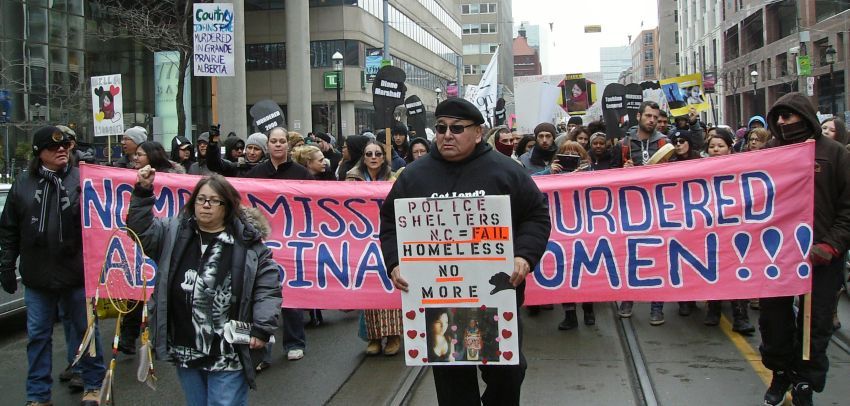
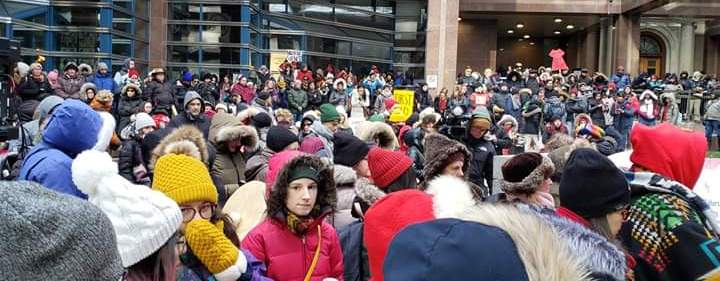
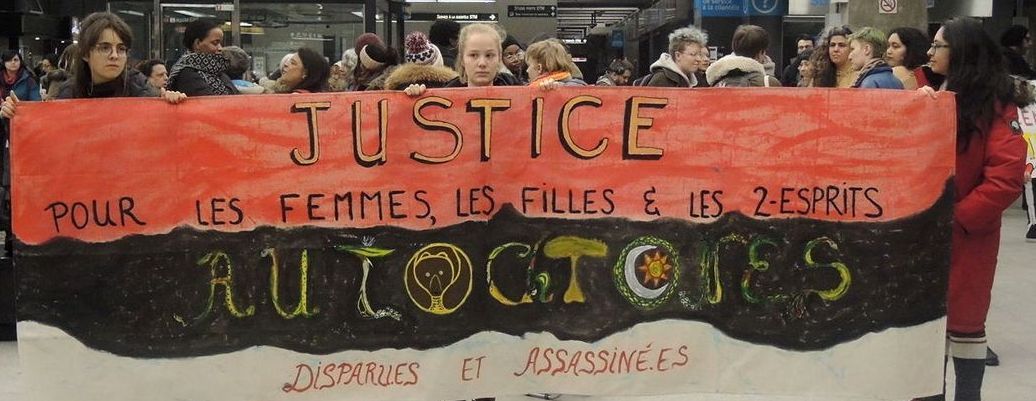
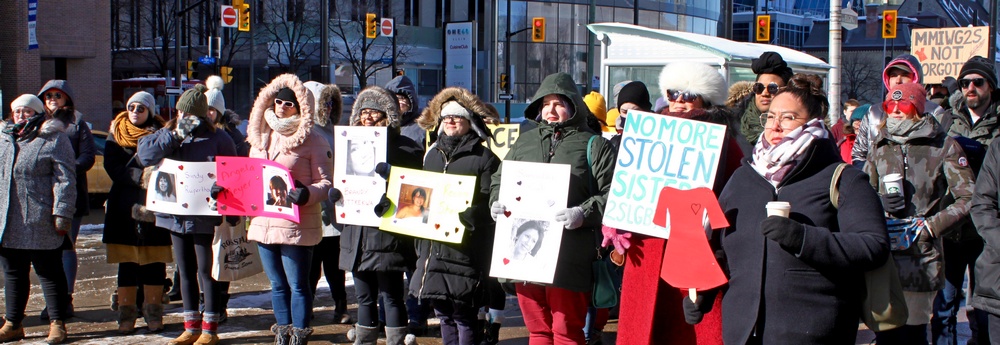

(To access articles
individually click on the black headline.)
PDF
PREVIOUS ISSUES
| HOME
Website: www.cpcml.ca
Email: office@cpcml.ca
|

